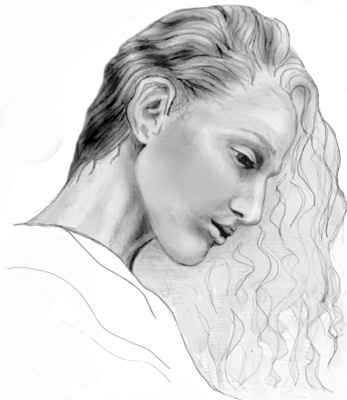All Nonfiction
- Bullying
- Books
- Academic
- Author Interviews
- Celebrity interviews
- College Articles
- College Essays
- Educator of the Year
- Heroes
- Interviews
- Memoir
- Personal Experience
- Sports
- Travel & Culture
All Opinions
- Bullying
- Current Events / Politics
- Discrimination
- Drugs / Alcohol / Smoking
- Entertainment / Celebrities
- Environment
- Love / Relationships
- Movies / Music / TV
- Pop Culture / Trends
- School / College
- Social Issues / Civics
- Spirituality / Religion
- Sports / Hobbies
All Hot Topics
- Bullying
- Community Service
- Environment
- Health
- Letters to the Editor
- Pride & Prejudice
- What Matters
- Back
Summer Guide
- Program Links
- Program Reviews
- Back
College Guide
- College Links
- College Reviews
- College Essays
- College Articles
- Back
Critical Analysis of Sonnet 18
Sonnet 18
Sonnet 18 is among the most famous of Shakespeare’s works and is believed by many to be one of the greatest love poems of all time. Like other sonnets, it is written in iambic pentameter form, consisting of four quatrains and a rhyming couplet. It deals with the theme of beauty and the way it is affected by time. In this sonnet, Shakespeare also boasts to have the power to preserve his love’s beauty through poetry which has lead critics such as James Boyd-White to claim that it is actually ‘one long exercise in self-glorification’ rather than a love poem.
The sonnet begins with conveying the beauty of Shakespeare’s love. It is notable that their physical features are not actually described – we are told nothing specific of how they look – instead Shakespeare compares his love to a summer’s day and concludes that their beauty is greater than that of summer and the sun. The poem opens with the famous complimentary question:
“Shall I compare thee to a summer’s day?”
This question is flattering in itself as a summer’s day is often associated with beauty. Shakespeare, however, explains that his love’s beauty exceeds that of the summer and does not have its tendency towards unpleasant extremes:
“Thou art more lovely and more temperate:”
Shakespeare makes specific criticisms of the summer: its beauty is spoiled by strong winds and it disappoints us by being too short:
“Rough winds do shake the darling buds of May,
And summer’s lease hath all too short a date”
It should be noted that at the time the sonnet was written, England had not yet adopted the Gregorian calendar and May was considered a summer month. In the above quote, Shakespeare describes the fragility and short duration of summer’s beauty. The use of the word ‘lease’ reminds us of the fact that everything beautiful remains so for a limited time only and after a while its beauty will be forcibly taken away.
In the second quatrain, Shakespeare continues his criticisms of the summer. At this point, however, he focuses on the imperfection of the sun and explains that it is temporary and, like other aspects of the summer, tends towards unpleasant extremes:
“Sometime too hot the eye of heaven shines,
And often is his gold complexion dimmed,”
Shakespeare states that the sun, which he personifies and refers to as ‘the eye of heaven’, can be too hot or blocked from view by the clouds unlike his ‘more temperate’ love.
In the second quatrain Shakespeare poses his problem fairly explicitly: every beauty will fade either by chance or through the natural course of time:
“And every fair from fair sometime declines,
By chance or nature’s changing course untrimmed”
The repetition of the word ‘fair’ highlights the fact that this fate is inescapable for everything that possesses beauty. Shakespeare, however, states that his love will not lose their beauty to death or time but will be preserved through his poetry:
“But thy eternal summer shall not fade,
Nor lose possession of that fair thou ow’st,
Nor shall death brag thou wander’st in his shade
When in eternal lines to time thou grow’st”
Shakespeare’s self-assured claim makes it possible to argue that the purpose of the poem was not actually to pay a beloved person a compliment but rather to praise oneself for poetic skill. Evidence of Shakespeare writing this poem for the purpose of praising himself occurs subtly throughout the entire text. In the very first line, for example, due to the rhythmic structure the word ‘I’ is emphasised whereas the word ‘thee’ is not. This suggests that Shakespeare wanted to focus on himself rather than on his love. Likewise in the third quatrain, he personifies death and states that it will not ‘brag’ to power over Shakespeare’s love – this could be interpreted as Shakespeare stating that he will be the one who brags rather than death. Critics have also argued that since Shakespeare chose not to describe his love’s physical features, he was more concerned about praising himself rather than his love.
In conclusion, Shakespeare’s Sonnet 18 successfully conveys the themes of beauty and the effect of time on it through a variety of poetic techniques and effective use of the iambic pentameter structure. This sonnet, however, very possibly should not be regarded as a love poem due to the fact that Shakespeare has clearly aimed to draw a lot of attention to himself as the poet and that his description of his beloved’s beauty did not include much detail.

Similar Articles
JOIN THE DISCUSSION
This article has 14 comments.

2 articles 0 photos 9 comments